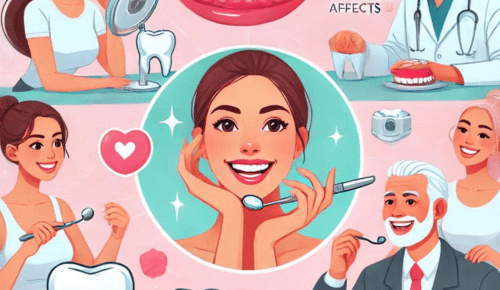
Many of us associate sleep apnea as a condition of restless sleep or snoring, but there are surprising connections between this condition and our oral health which many of us do not realize. It creates many more oral health issues than just simple breathing interruptions which affect our wellbeing. The dentist will be able to identify and manage sleep apnea because the symptoms often come from the mouth and jaw. It has a surprising connection that is the reason professionals in the field as well as local people are paying attention to it nowadays. If you want to seek guidance about it as a resident, West Houston, Texas dentist is an experienced professional who can help you with it. Learn about this connection more in detail in this article.
Jaw Structure and Sleep Apnea
The occurrence of sleep apnea is due to partial or complete blockage of the airway during sleep. Factors contributing to this are jaw alignment and structure. If someone has having smaller or receded jaw structure, they will be more prone to sleep apnea because the smaller jaw will push the tongue and soft tissue backward and it will narrow down the airway thus the collapsed tissues are going to interrupt proper breathing. Also, the shape in which the upper and lower jaw is going to align is called dental also, like if it is narrow it will block the tongue and will push backward which will block the proper airways. Bruxism, a habit of grinding teeth, can be a response to trying to get better sleep.
Oral Symptoms and Sleep Apnea
Most of the time oral symptoms will be easily detected during regular dental checkups. People with breathing difficulties do not often know of it. Signs like you have dry mouth due to breathing through your mouth will lead to dry mouth which can be a visible sign that you have sleep apnea. A dry mouth leads to an increased risk of cavities, gum disease, and bad breath. The sticky and dry feeling of your mouth, and thick saliva a clear signs of a dry mouth. This type of condition not only causes breathing issues but also irritates your gums and causes swelling and infection leading to gum diseases. When you grind your teeth to reduce sleep restlessness it will wear down the enamel and thus increase tooth sensitivity, if a tooth appears flattened and worn down, and condition of a scalloped tongue with ridges along its edges is caused by pressing it against teeth.
How Dentists Help In Sleep Apnea?
It is not widely known that your dentist can treat your sleep apnea using oral health as a factor. They use treatments like oral appliance therapy which uses custom-made devices that will heal your mouth and help in repositioning your jaw or tongue which is obstructing the airway, it is mainly used by patients who are experiencing continuous airway pressure. Another commonly used device by dentists is the Mandibular Advancement device which helps by moving your lower jaw forward to prevent pressure on the tongue and tissues from collapsing on the throat and obstructing the pathways. Just like this one, there are devices like tongue-retaining that help keep the tongue forward so that it will not collapse on the airways. Even with the new inventions in dentistry, there will be a need for a sleep specialist to completely treat sleep apnea with the help of a dentist. For complete treatment, they both collaborate to plan the treatment after they diagnose the condition of sleep apnea.
Get Help From Your Dentist!
If you are also finding the condition of restless sleep and snoring a problem for you, consult your dentist for a diagnosis. They will help you with treating your sleep apnea by collaborating with a sleep specialist.